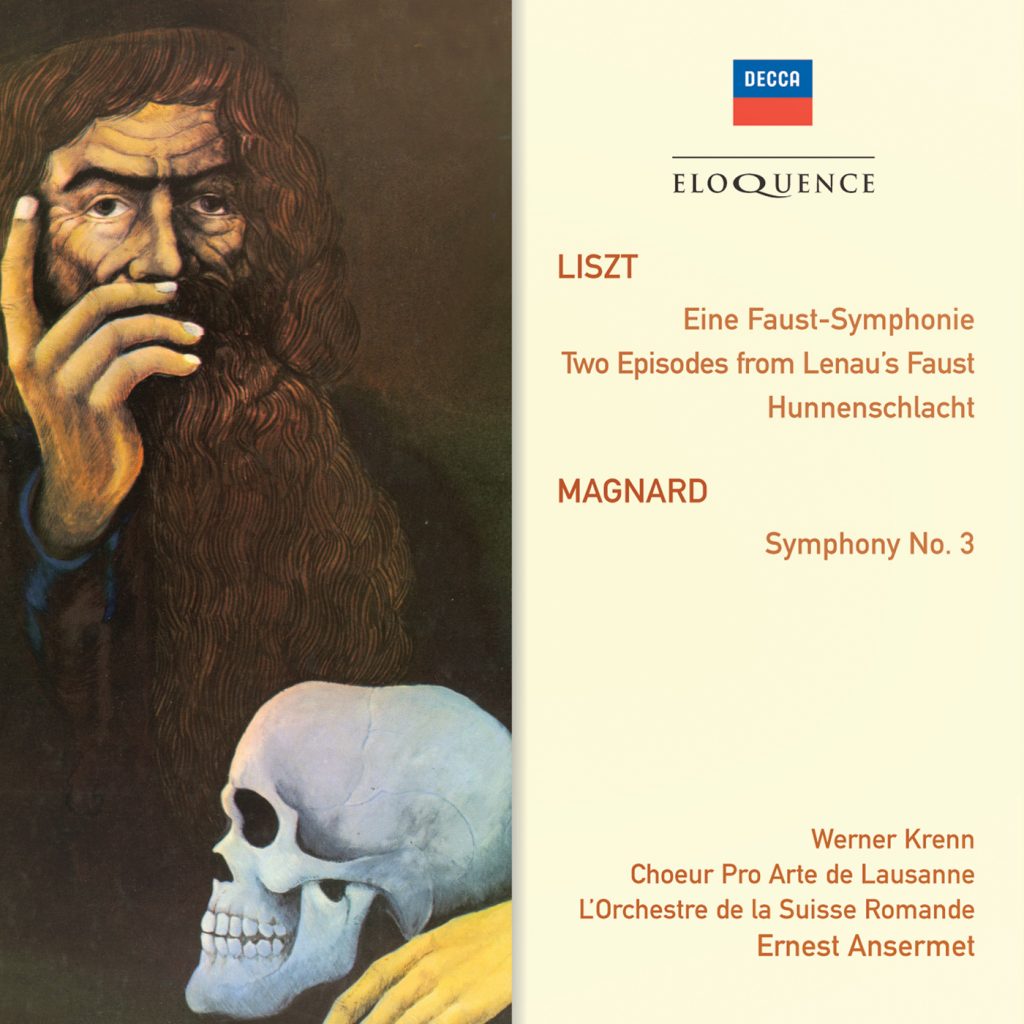Liszt’s Eine Faust-Symphonie, based on the Faust legend, is an hour-long work for tenor, choir and orchestra, based on the Faust legend. The Suisse Romande Orchestra take to this complex score, one with which they could hardly have been familiar, with clear enthusiasm and imbue the performance with alertness and vivacity. The woodwind playing of the orchestra (not always enjoyed by critics) in the Gretchen movement is especially sensitive. Ansermet is direct, honest and conveys emotional intensity without resorting to sentimentality or the vulgarity to which conductors of this music are sometimes prone. The recording is vivid and full of presence.
So too for the pair of ‘Scenes from Lenau’s Faust’ – the familiar Mephisto Waltz No. 1 (this time with the alternative quiet ending) coupled with the beautifully atmospheric ‘Nocturnal Procession’.
Magnard, sometimes described as the ‘French Bruckner’ was clearly part of a group of French composers influenced by the Austro-German school. Yet, his third symphony shows a Classical discipline and poise. This work was recorded by Ansermet very late in his career, at a time when musical byways were far less likely to be explored than today. For many years, it was virtually the only recording of any work by Magnard and it demonstrates how Ansermet’s keen musical curiosity remained undimmed by his advancing years. The Suisse Romande perform the work with poise and clarity.
CD 1
FRANZ LISZT
Eine Faust-Symphonie
Dance at the Village Inn (Mephisto Waltz No. 1) Two Episodes from Lenau’s Faust
CD 2
Nocturnal Procession Two Episodes from Lenau’s Faust
Hunnenschlacht (Battle of the Huns regular)
ALBERIC MAGNARD
Symphony No. 3, Op. 11
Werner Krenn, tenor
Choeur Pro Arte de Lausanne
L’Orchestre de la Suisse Romande
Ernest Ansermet
Recording producers: John Mordler (Eine Faust-Symphonie, Two Episodes from Lenau’s Faust, Magnard); James Walker (Hunnenschlacht)
Recording engineers: James Lock (Eine Faust-Symphonie, Two Episodes from Lenau’s Faust, Magnard); Roy Wallace (Hunnenschlacht)
Recording location: Victoria Hall, Geneva, Switzerland, September 1967 (Eine Faust-Symphonie, Two Episodes from Lenau’s Faust); November 1959 (Hunnenschlacht); September 1968 (Magnard)

